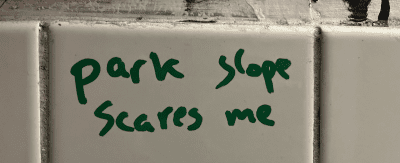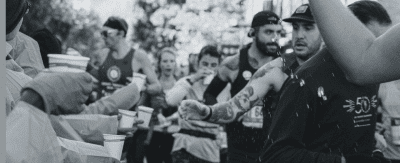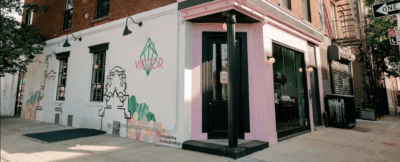Offerings for the spirits. (Photo by Stephanie Keith)
Inside a Haitian Vodou ceremony in South Brooklyn
An intimate look at an annual gathering to summon and honor the island’s water spirits
Outside a house on a somewhat nondescript suburban block in South Brooklyn’s Flatlands neighborhood on Saturday night, two women stand dressed all in white. One is carrying a large bouquet of blue-dyed flowers that she has brought to place on the backyard altar.
It is August, and so Brooklyn’s Haitian Vodou community is gathering to honor the water spirits — Agwe and La Sirene, the male and the female manifestations of the sea — here at the home of their priest, Jean Robert Lodvil. Stepping into the backyard, visitors are transported to a different world. Congregants wearing blue and white mingle in Lodvil’s spacious backyard, anchored on one end by an altar, bathed in blue and white cloth and covered with maritime elements such as crabs and fish. A blue pole stands in the middle — the portal between the human and spiritual world — and all the way in the back is an above-ground pool.
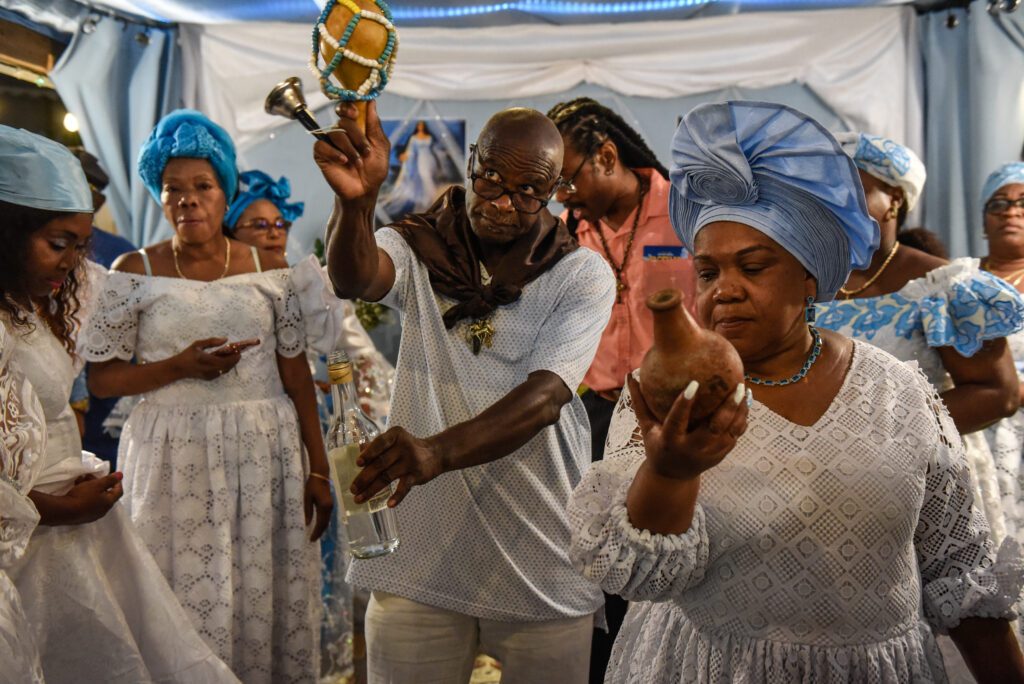
Jean Robert Lodvil, center, and Jamais Bouque Bonmambo Domlaje, right, start the ceremony by calling the spirits with songs and a sacred rattle. (Photo by Stephanie Keith)
Once the space filled up, the drums start. One by one, the various different spirits — Legba, Papa Loko and Damballah — are called with song and saluted with a sacred rattle and candles.
Haitian Vodou, a life-sustaining religion practiced by nearly a quarter of the island’s population, is probably one of the most misunderstood religions of the world. Vodouisants, as practitioners are sometimes called, have struggled with the perception that Vodou is somehow evil. To practitioners, though, Vodou spirits are not only positive guides but they actively help people in their lives.
“You believe what you believe and I believe in my spirits,” says Raymonde Rinvil, also known as Jamais Bouque Bonmambo Domlaje, one of the leaders of this night’s Vodou ceremony. “If you come to your spirits with a pure heart, they will help you in your life.”
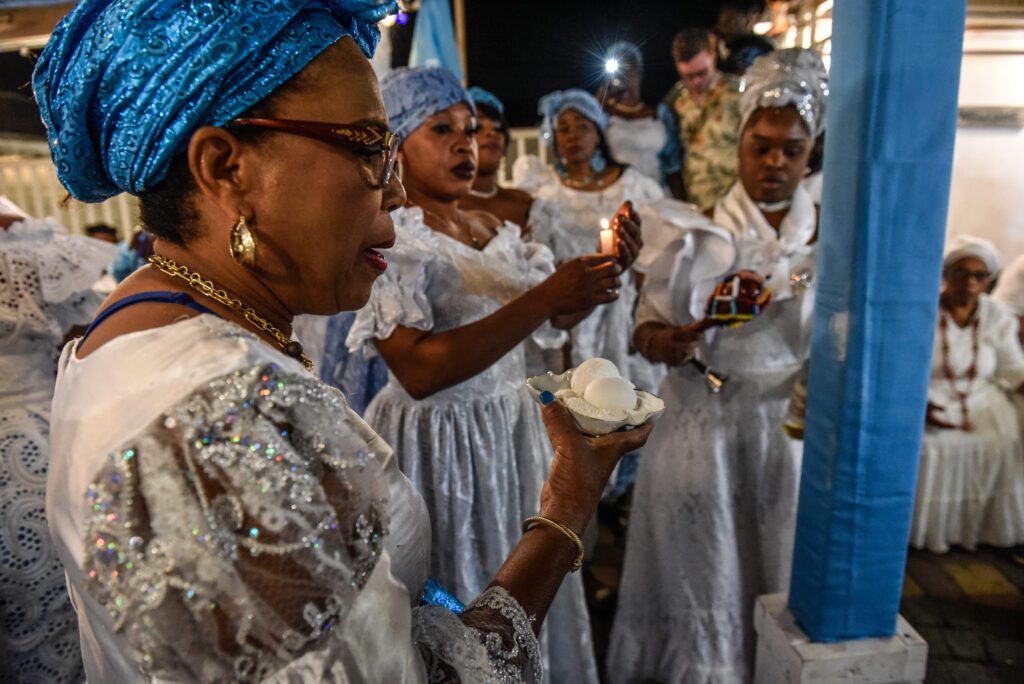

Practitioners call the spirit Damballah, which is represented by the eggs. (Photo by Stephanie Keith)
Some Brooklynites may be surprised that there is a large and important Haitian Vodou practice right in their backyard. But the borough has the largest population of Haitian people outside of the island, after all — 90,000 of them — and when people immigrate, they tend to bring their culture with them.
The main event of Saturday’s gathering is to summon and honor Agwe and La Sirene — incredibly important water spirits to island-living Haitians. The ceremony, which requires a water element, had in the past taken place at Riis Park Beach in the Rockaways, but in recent years it has been hosted at Lodvil’s home, which has a pool.
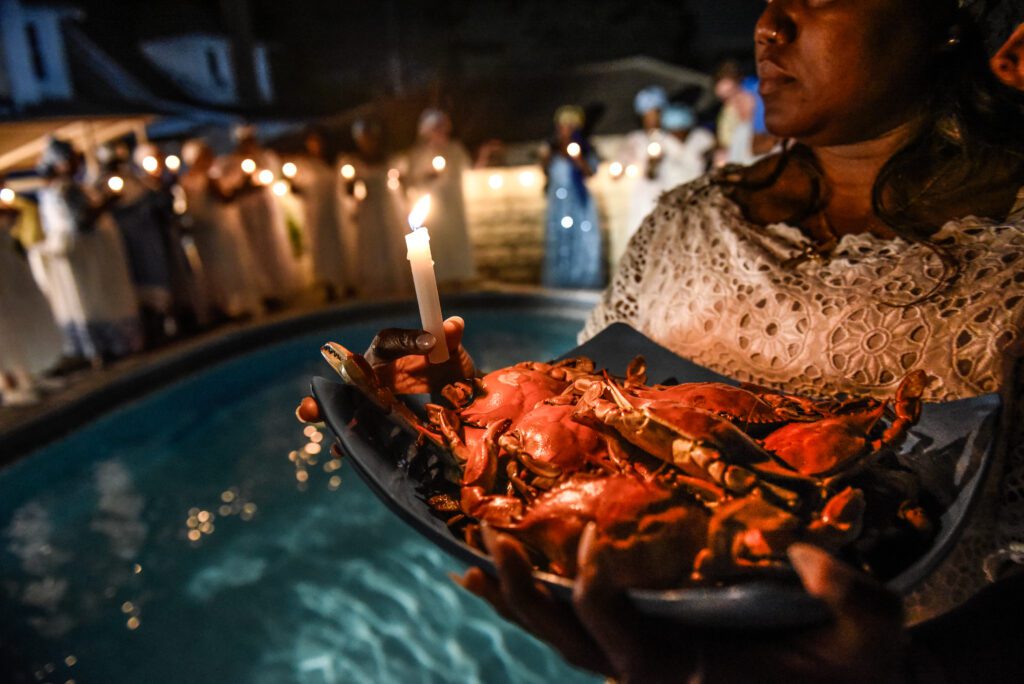

A woman carries a plate of crabs around a pool while they call for the spirit Agwe to come to the ceremony. (Photo by Stephanie Keith)
Brooklyn’s Haitian Vodou community is very close knit, and they have been anxiously looking forward to this event as a pinnacle of summer — a chance for the community to get together as a whole and a chance for them to speak directly to their spiritual guides: Singing, drumming and dance entice particular spirits to essentially enter the body of one of the practitioners. The spirit is said to “mount” and “ride” a congregant in a way that we might understand as possession. This allows other practitioners to effectively speak directly with the spirit.
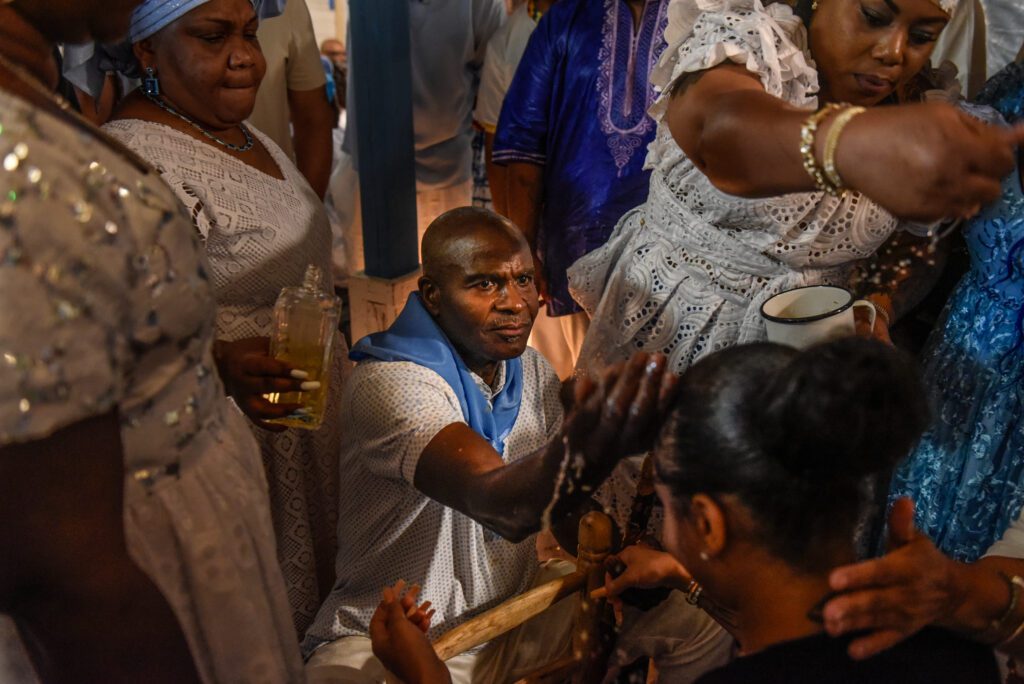

Jean Robert Lodvil, center, is possessed by the spirit of Agwe and blesses the people at the ceremony. (Photo by Stephanie Keith)
To summon Agwe, attendees hold up large plates of crabs and cooked fish as offerings. They walk around the deck of the pool singing ceremonial songs. And when Agwe arrives at the party, he inhabits Jean Robert Lodvil’s body.
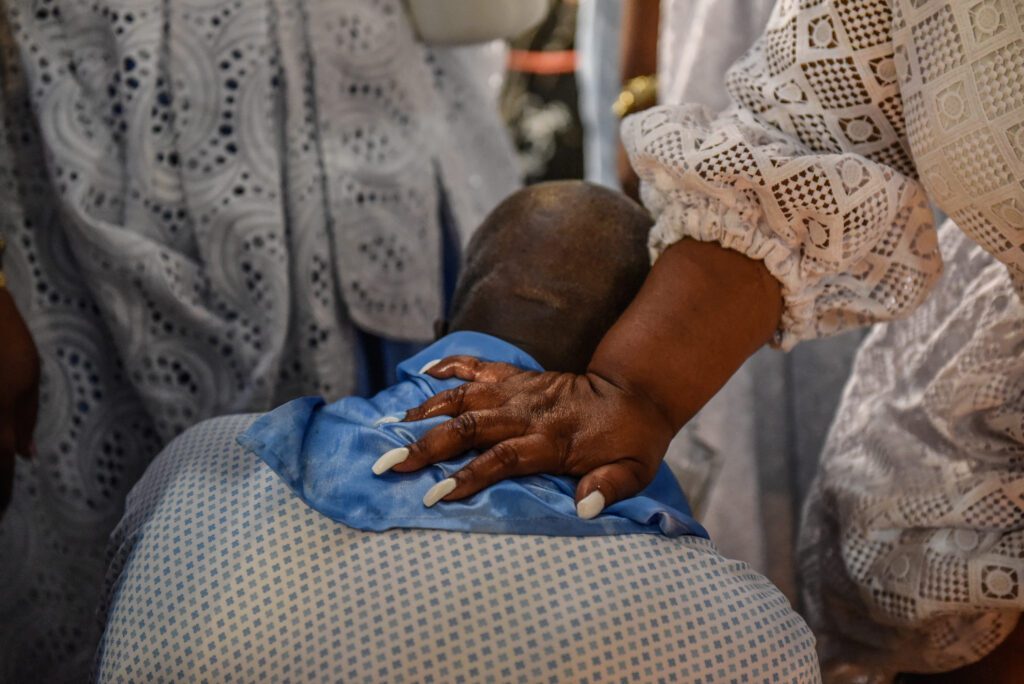

Lodvil, possessed by the spirit of Agwe. (Photo by Stephanie Keith)
With Agwe riding him, Lodvil sits in a small traditional chair as his guides help him to greet the people at the party. “If people have a problem in their life, they can pray with Agwe to resolve the problem,” says Rinvil. And that’s exactly what Agwe does as he grasps attendees by both hands and touches his forehead to the heads of supplicants. He pours perfume on people’s hair and will sometimes blow alcohol in their faces. (It’s not always easy interacting with a spirit.)
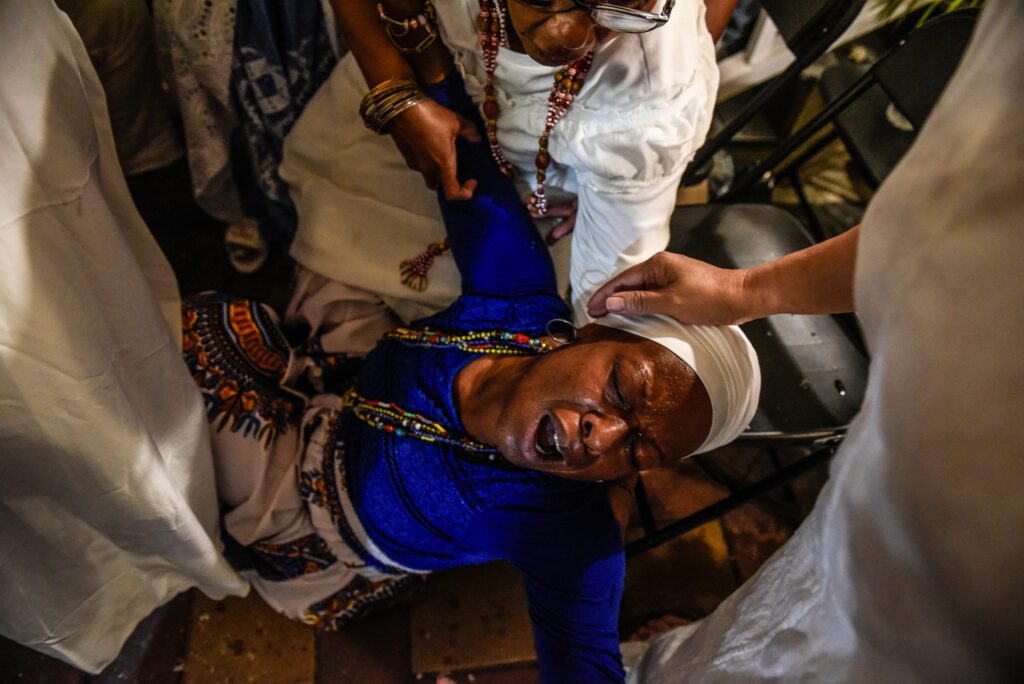

A woman catches a spirit. (Photo by Stephanie Keith)
Next comes La Sirene, seen as a mermaid, queen of the ocean and queen of the beneficent Rada spirits. She is said to bring good luck, particularly for sailors, though does not look kindly on those who don’t adequately praise her beauty. One participant was heard saying, “Bow to your Queen,” as La Sirene made her rounds.
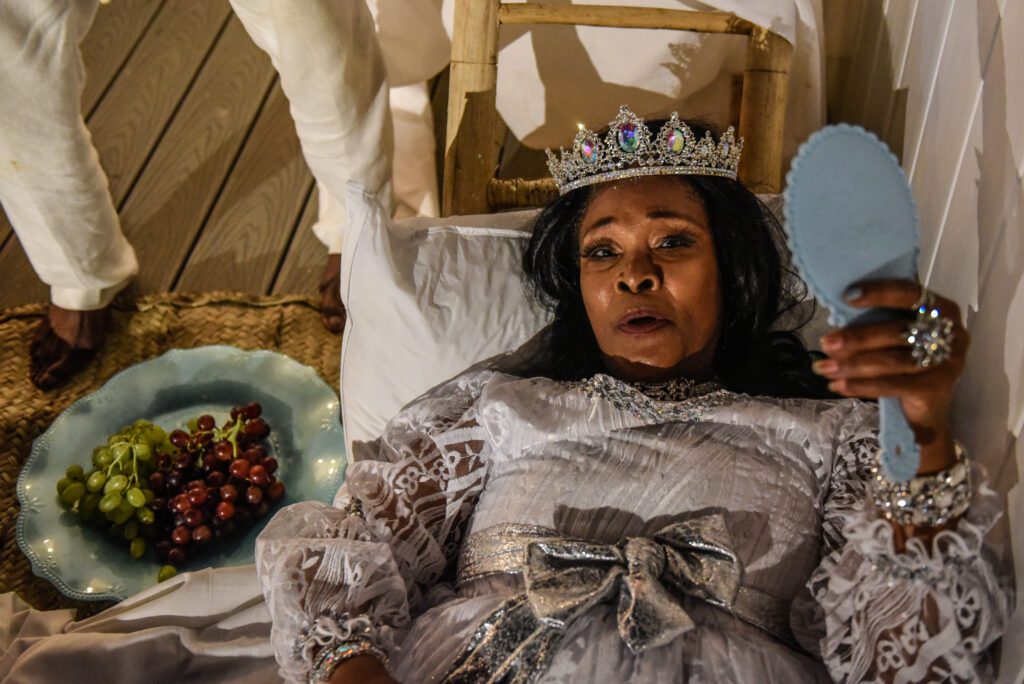

Marie Swan manifests her spiritual possession by the spirit La Sirene by wearing a crown and holding up a mirror. (Photo by Stephanie Keith)
Tonight it is Marie Swan, a priestess, or mambo, who will be the vessel for La Sirene. When Swan arrives, she is put under a blanket at the altar near the pool. Once the possession is fully engaged, she gazes at herself in the mirror — a portal between our world and the mystical realm — before entering the pool to greet and bless the supplicants standing by the water. When it’s time for La Sirene to leave the human body, Lodvil removes Swan from the pool to rest after an intense possession.
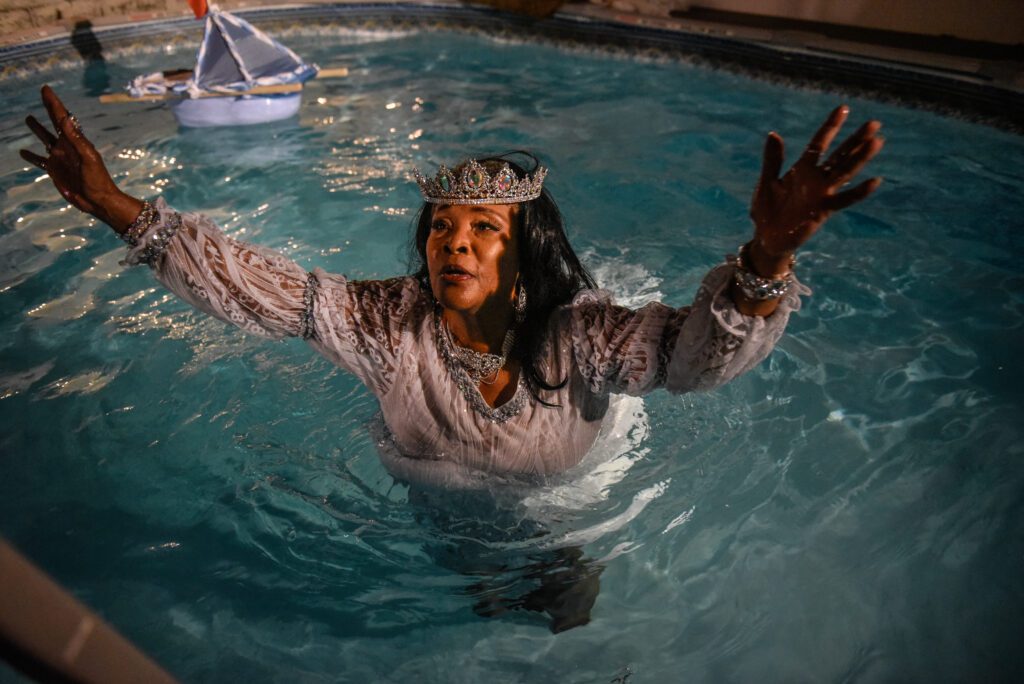

Swan, inhabited by La Sirene, enters the pool. (Photo by Stephanie Keith)
Once Agwe and La Sirene leave the party, people mingle a while before being given plates of food to take home some time around 4 a.m.
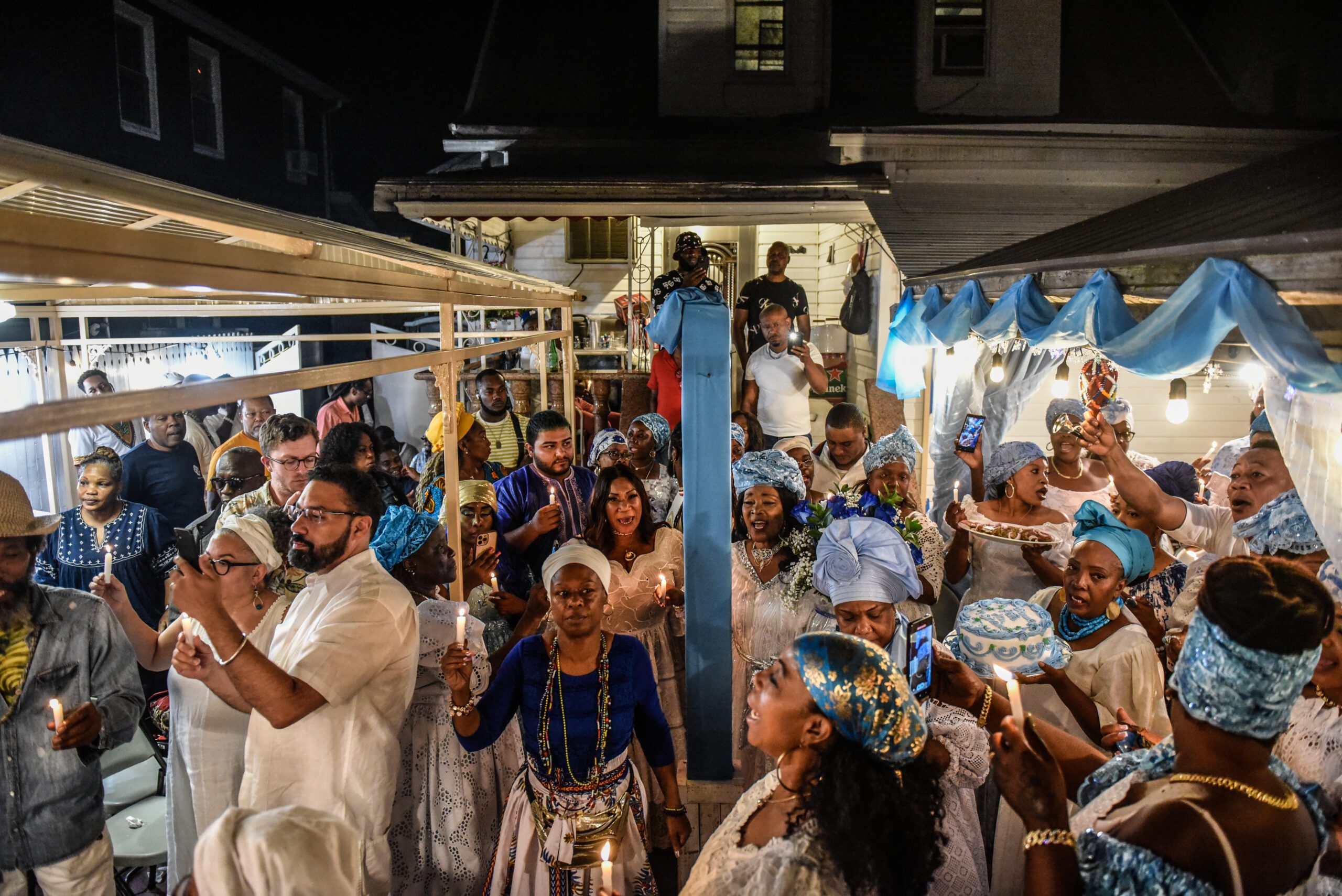

The backyard where the ceremony took place. (Photo by Stephanie Keith)
You might also like 

















